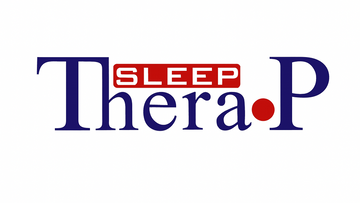
Memory Foam vs. Spring Mattresses:
🛏️ 2. Memory Foam vs. Spring Mattresses: What Does Sleep Science Say? We break down the science behind memory foam and spring mattresses so you can choose what’s right for your sleep style. ⚖️ The Great Mattress Debate For decades, sleepers have argued: spring or memory foam? Modern sleep science finally provides the answer — it depends on your body’s needs, not just comfort preferences. 🧠 Memory Foam: Pressure-Relieving Innovation Originally developed by NASA, memory foam responds to heat and weight, molding to your body and minimizing pressure points. It’s ideal for: Side sleepers needing shoulder and hip support People...

SLEEP SCIENCE BY SLEEP THERAP
🧠 1. The Science of Sleep: What Really Happens When You Close Your Eyes Discover what your brain and body do while you sleep — and how the right mattress can enhance deep sleep and recovery. 💤 The Hidden World of Sleep Every night, your body and mind embark on one of nature’s most essential journeys — sleep. It’s not simply rest; it’s a biological repair process guided by rhythm, hormones, and brain waves. When you close your eyes, your brain begins cycling through four stages of sleep: light, deep, and REM. 🌙 The Four Stages of Sleep Stage 1...

The Future of Sleep:
🌿 5. The Future of Sleep: How Technology and Science Are Redefining Rest From smart mattresses to AI-powered trackers, discover how technology is transforming the way we sleep. 🚀 The Rise of Smart Sleep Sleep isn’t static — it’s evolving. With advances in neuroscience and technology, our understanding of rest has never been deeper. The future of sleep lies in data-driven comfort. 🧩 Smart Mattresses & Sensors Modern mattresses now integrate: Temperature-regulating sensors Automatic firmness adjustment Sleep phase trackingThese help you understand your sleep patterns and adjust your environment accordingly. 💻 AI and Wearables Devices like sleep trackers use heart...

The Perfect Sleep Environment
💡 4. The Perfect Sleep Environment: What Science Says Your Bedroom Should Feel Like From lighting to temperature, discover the science-backed secrets to creating the perfect sleep sanctuary. 🌌 Your Bedroom Is a Sleep Ecosystem According to research from the National Sleep Foundation, the environment you sleep in can determine up to 30% of your sleep quality. That includes light, temperature, scent, and even your bedding material. 🌡️ Temperature: The Goldilocks Rule Your core body temperature drops to initiate sleep. Studies suggest the ideal bedroom temperature is 18–20°C. Too hot or too cold, and your body struggles to maintain sleep...

Why You Still Feel Tired After 8 Hours of Sleep
🌙 3. Why You Still Feel Tired After 8 Hours of Sleep — The Hidden Science 8 hours isn’t always enough. Learn the real science behind restorative sleep and how to finally wake up refreshed. 😩 When “Enough Sleep” Isn’t Enough We’ve all been there — 8 hours of rest, yet you wake up groggy. The culprit? Poor sleep quality. The number of hours you sleep is less important than how restorative those hours are. 🧠 Sleep Quality vs. Quantity Research shows that deep and REM sleep phases matter more than total duration. If your body keeps shifting positions, or...
